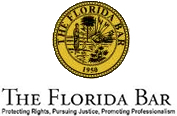It is no secret that Florida has a growing prescription medication abuse problem. Consider some of the recent statistics:

How exactly did we get here?
Twenty five years ago the medical community was reluctant to prescribe opiod medications (i.e. Oxycodone, Vicodin, Oxycontin) for purposes of pain management. The thought was that these medications, although effective in addressing pain issues, were also highly addictive and dangerous.
In the years since, a shift in favor of “pain management” and “patient quality of life” led the medical community to look at these medications in a different light. The thought was that if used conservatively and under a doctor’s care and supervision, a patient’s pain levels can be controlled without serious risk of addiction. Along with the increased use of opiods, physicians increased the number of prescriptions for “central nervous suppressants” (CNS), like Valium and Xanax, and stimulants, such as Ritalin and Adderall.
Along with the change in philosophy of the medical community regarding prescription medication use came the proliferation of medication only “pain clinics.” Historically, many of these facilities have been “non-physician” owned and are rarely accredited through fellowships and board certification processes. These facilities have had little state or federal oversight which allows for a continuous supply of controlled substances and increases the number of people dependent upon these medications.
Increased use of dangerous highly addictive medications leads to an increased number of addicts who eventually resort to “doctor and pharmacy shopping” and other criminal behavior to support their addiction. As a result, we have seen thousands of “prescription medication addicts” in the criminal justice system charged with all sorts of crimes that include “drug possession”, “doctor shopping”, “obtaining controlled substances through fraudulent prescriptions” and “drug trafficking.”
How Do We Fix the Problem?
Recent Florida legislation has been drafted and implemented that will make it more difficult for pain clinics to open and operate. Other potential legislation is aimed at limiting the monthly supply of prescription pills that a pharmacy can dispense. Both of these ideas will help. Additionally, it is absolutely imperative that Florida fund and operate its “Prescription Drug Monitoring Program.” Over the last several years, thirty eight (38) states have passed legislation to create statewide Prescription Drug Monitoring Programs (PDMP) — these programs have been highly effective at limiting prescription drug abuse. Florida passed its own version of a “PDMP” in 2009. “Florida’s Prescription Drug Monitoring Program” is designed to force doctors and pharmacists who prescribe and/or dispense dangerous prescription medications to “log” the prescription information into a central state run database within a specified time period. Thereafter, doctors and pharmacists would be permitted to access the database to determine if a prospective patient about to receive prescription medication recently had a similar prescription filled. A “PDMP” arms the doctor and pharmacist with patient prescription history so that the medical professional can accurately determine if the current prescription is warranted. In the long run, the proposed legislation and “PDMP” will limit the available supply of prescription medication and control an addict’s access to prescription medication.





